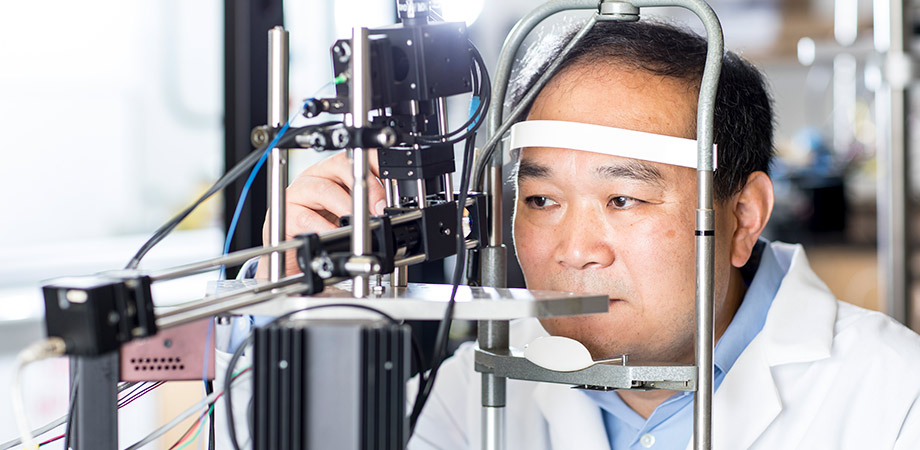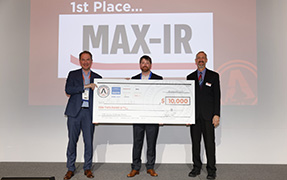Ruikang Wang: The 2025 SPIE Britton Chance Biomedical Optics Award

Ruikang Wang, a professor in the University of Washington’s bioengineering department, holds the George and Martina Kren Endowed Chair in ophthalmology research at the university. He is known for his significant work in biomedical optics and imaging, notably inventing optical coherence tomography angiography (OCTA), a revolutionary technique that allows non-invasive 3D visualization of blood flow, now widely adopted in clinical ophthalmology, making a meaningful impact on saving patient vision. He has published extensively on this topic, including demonstrations of the use of OCTA to capture images of retinal, cerebral cortical, cochlear and skin blood flow, and the oral cavity, without the need for contrasting dyes. He has further enriched the field by developing advanced OCT imaging technologies such as phase-sensitive OCT, complex-full-range imaging, and optical coherence elastography, pushing the boundaries of these technologies in both clinical settings and research. His laboratory has also made important contributions to the development of smartphone-based healthcare, inventing a low-cost technique to create hyperspectral imaging on unmodified smartphones, illustrating a deep commitment to improving patient outcomes and advancing medical science.
An SPIE Fellow, Wang has served the Society in numerous capacities including organizing and chairing conferences at SPIE BiOS and Photonics Asia, and as a reviewer and contributing author for SPIE’s Journal of Biomedical Optics (JBO), Optical Engineering, and Neurophotonics. In 2009, he served as a guest editor — alongside Valery Tuchin and Alvin Yeh — of a JBO special section on optical clearing of tissues and cells. In 2023, Wang received the University of Washington Medicine Inventor of the Year Award, which recognizes outstanding university scientists whose inventions have had a major impact on both human health and the local economy.
“I first met Ricky in the early 2000s, when he was a professor at Cranfield University in the UK,” says Director of the Caltech Optical Imaging Laboratory, Bren Professor of Medical and Electrical Engineering, and Andrew and Peggy Cherng Medical Engineering Leadership Chair Lihong Wang. “I was impressed even then by his outstanding quality of work, and since then we have met many times at technical conferences. He is a pioneering figure in the field of biomedical optics, with a profound impact on both scientific advancements and healthcare outcomes. Over a span of 25 years, Dr. Wang has contributed significantly to the development of novel imaging technologies, including OCT, laser speckle/Doppler imaging, and tissue optics. His innovations have led to functional imaging based on hemodynamics and early disease detection, with a particular focus on improving patient quality of life, especially in resource-limited settings through smartphone-based healthcare techniques. Moreover, Dr. Wang’s contributions extend to addressing limitations in OCT and pioneering phase sensitive OCT, enabling precise measurement of tissue motion and characterization of tissue mechanical compliance, with applications ranging from auditory research to neuroscience. Overall, his expertise and impact have significantly advanced scientific knowledge and improved healthcare outcomes, cementing his legacy as a leader in the field.”
Meet the other 2025 SPIE Society Award recipients.
Read more about Ruikang Wang and the SPIE Britton Chance Biomedical Optics Award.
| Enjoy this article? Get similar news in your inbox |
|



